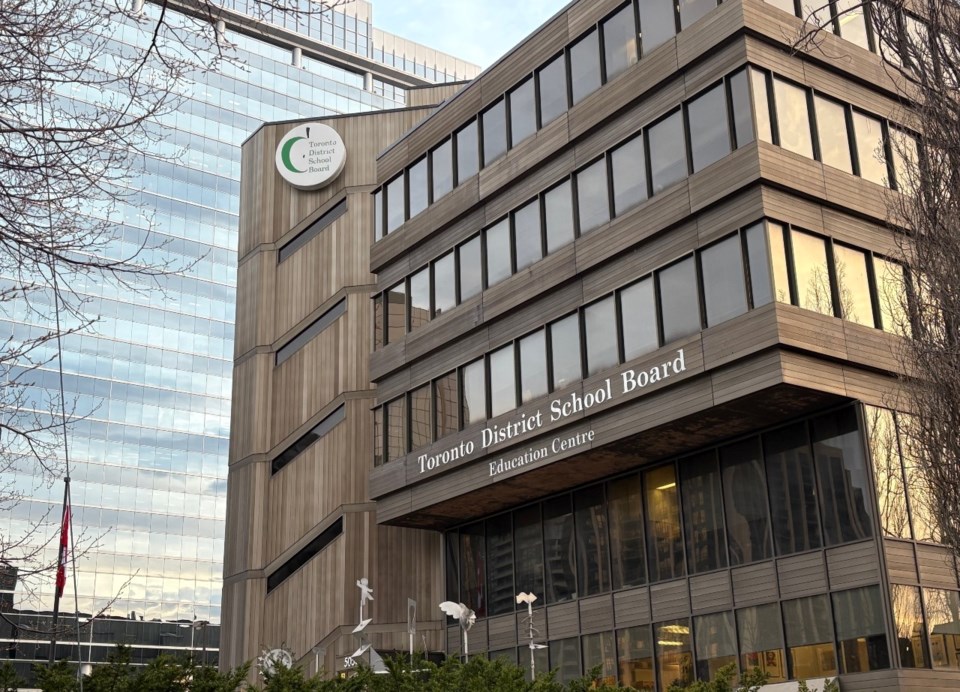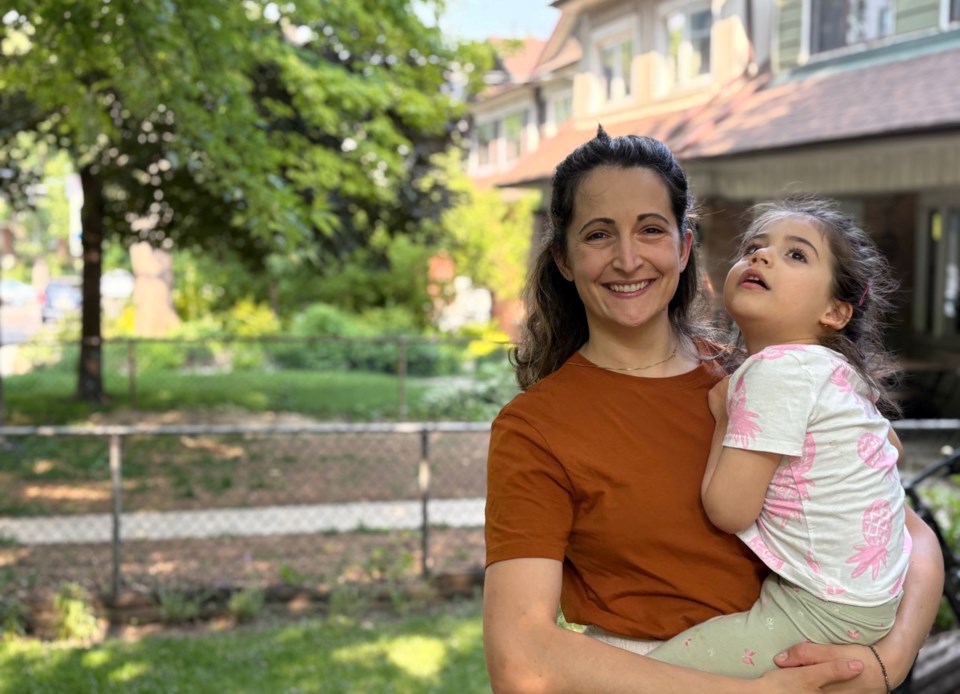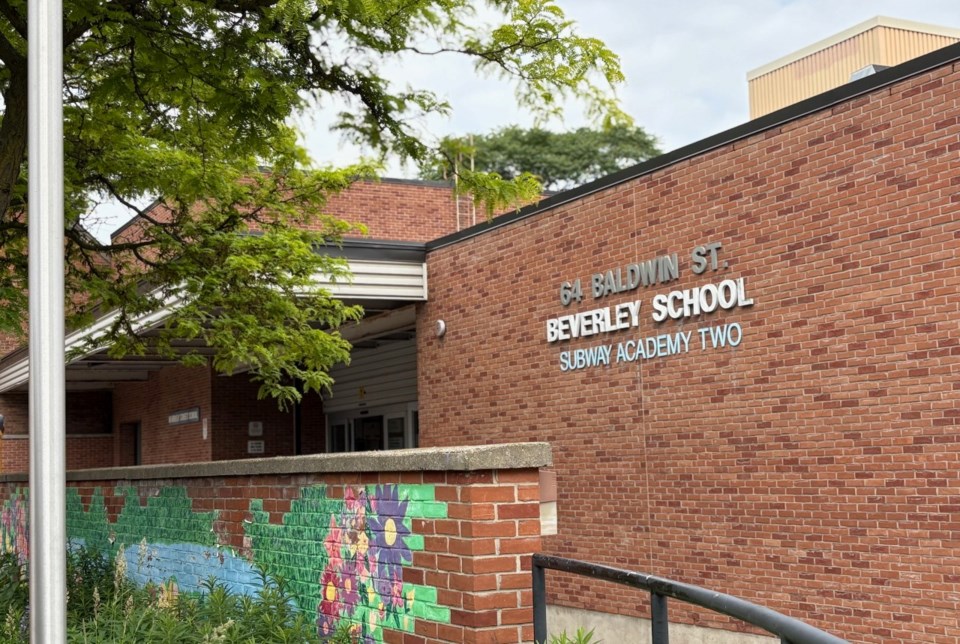This article was first published by TorontoToday, a Village Media publication.
Amidst a heated battle with the provincial government over its 2025-26 budget, the Toronto District School Board (TDSB) has proposed increasing class sizes next year for some of its specialized programs for students with disabilities.
The decision would affect hundreds of the board’s most vulnerable learners citywide.
In its 2025-26 special education plan, TDSB staff have proposed increasing class sizes for diagnostic kindergartens — specialized junior and senior kindergarten classes for disabled students — from an existing cap of eight students per teacher, to up to 10 students.
TDSB staff have also proposed an increase for specialized junior school classes for students with mild intellectual disabilities (MID) — from an existing 14 students per teacher to up to 16.
Children in the diagnostic kindergarten classes, typically three and four years old, are among the students with the most complex learning needs boardwide and often have multiple disabilities.
One TDSB diagnostic kindergarten teacher gave an example of a child in her class who has a traumatic brain injury, cerebral palsy, a seizure disorder, gross and fine motor challenges, a vision impairment and autism.
With the right resources, the teacher said this student and her peers can thrive, but that the board’s proposal to increase diagnostic kindergarten class sizes feels like a “betrayal.”
TorontoToday spoke with four instructors and three parents who said the plan to increase class sizes is a misguided and dangerous attempt by the board to cut costs amidst a budget crisis.
Instructors, who spoke anonymously out of fear of repercussions, said class sizes in these specialized programs already go beyond what’s safe, resulting in frequent student and teacher injuries.
At a program and school services committee meeting earlier this month, TDSB special education system superintendent Debbie Donsky said the planned class size increases will boost “access” to the diagnostic kindergarten and junior MID programs by allowing students to get off existing wait lists faster.
She said increasing class sizes will also enable the TDSB to better “align” with the province’s existing class size caps.
However, earlier this spring, the TDSB proposed running a $58-million deficit for 2025-26, but the Ministry of Education refused, demanding balanced books from the country’s largest school board.
While TDSB staff have proposed scrapping music programs, shuttering pools and reducing student access to laptops, they insist support for disabled students is not on the chopping block.
But parents and teachers disagree, arguing the decision to expand class sizes is effectively a reduction in services.
Teachers report kicking, punching and other classroom violence
Four instructors — three teachers and one educational assistant — who work in the board’s diagnostic kindergarten classrooms told TorontoToday class sizes have already been pushed to the limit.
The instructors noted that several years ago, the board increased class sizes from six to eight students, which they say have pushed classroom resources to the extreme.
On days when some of their students are away, instructors said they are able to offer an environment conducive to learning. But on days when all eight students are present, instructors said its a struggle.
Instructors noted that because many of their students still wear diapers and their classrooms do not have built-in bathrooms, their class educational assistant is mostly occupied taking students down the hall and back for changes, leaving the one teacher alone for much of the day to support the seven other students.
One teacher said earlier this year, a student hit another with a chair, leaving a permanent scar on the child’s face. At the time of the incident, the teacher said her educational assistant was out of the room changing another child’s diaper, while she was on the other side of the room and couldn’t run fast enough to stop it.
“She’s going to carry that scar for the rest of her life,” she said, of the child who was injured.
One diagnostic kindergarten teacher said she doesn’t normally record every incident of low-level violence in her classroom because she doesn’t have time — but sat down this week to do so, knowing the board is proposing increased class sizes.
The teacher said there’s been an average of five to ten incidents per day in recent weeks. She said she’s been bitten and scratched. Other teachers described having been kicked, spit at, groped and having their hair pulled.
The instructors told TorontoToday they accept this to be part of the job and that they don’t fault the students.
However, they said they are appalled trustees are considering adding more children to their classrooms without additional resources. They believe this will increasingly put students in harm’s way and further jeopardize their own health and safety.
Teachers said many of their autistic students are particularly impacted by noise and chaos. They said behavioural challenges are sure to increase in frequency should larger classes transpire.
The educational assistant, who has worked in a diagnostic kindergarten classroom for about 10 years, said the proposed class size increase is causing him to lose sleep. Should it come to pass, he said he’s considering a role change.
Instructors said life-changing learning is happening in their classrooms — students are learning the alphabet, counting past 100 and speaking for the first time — but that these milestones would be less common with larger classes.
One instructor said it’s particularly upsetting that the board is proposing a change that would impact many non-verbal learners who don’t have the capacity to tell their parents what happened at school each day.

Beverley School loses a teacher
The proposed class size increases are not the only changes for 2025-26 which could impact students with disabilities.
Next year, Beverley School, an elementary school in Baldwin Village which exclusively serves the board’s most profoundly disabled students, will have one fewer teacher.
The TDSB confirmed the staff reduction in response to a TorontoToday inquiry, but did not respond to a question about how this will impact existing class sizes or school enrolment.
The board spokesperson said the change was made as a part of the board’s annual staffing allocation process.
“Staffing decisions are not made lightly, and we remain committed to balancing staffing across the district to best support all students,” the spokesperson said.
Stephanie Telesca, a local parent whose daughter will attend the school next fall, alleged she was told by the principal that for the upcoming school year, there will be only one incoming class, rather than two classes in previous years.
The TDSB did not respond to a request to confirm whether Beverley school is reducing the number of incoming classes.
Telesca said the decision would be alarming, given the number of children born with disabilities is not decreasing.
If the number enroled at Beverley is set to drop, she said she is fearful students are being redirected to other schools, where they will receive less support.

Parent petition draws 1,600 signatures
Parents of current and former students of Heydon Park Secondary School, another school serving students with mild intellectual disabilities, are also concerned about the board’s recent decision to cancel Grade 9 enrolment to the school for next fall.
Worried this is the TDSB's first step toward closing the school, parents have launched a petition opposing the cancellation. As of Sunday evening, it had more than 1,600 signatures.
Heydon Park students are also planning a walk-out on Monday.
In a post on the school's website earlier this month, the TDSB said the decision was made “due to limited enrolment” for the fall semester.
But earlier this month, three parents of current or former students, Maja Rehou, Nadine D’Aigle and Dorlean Rotolo, told TorontoToday they believe demand for the school remains high.
Parents said possible low enrolment could due to be poor promotion of the school, as birth rates of children with intellectual disabilities haven’t significantly changed.
A game of semantics?
In a statement to TorontoToday, a TDSB spokesperson said the board is not cutting the number of staff offering special education services next year.
“The staffing investment in Special Education remains the same for our Board,” the spokesperson said.
But Leo Lagnado, a representative of Autism Ontario, said the TDSB is engaged in a game of semantics. While he said it may be true special education job cuts are not in the plan, an increase in class sizes is a material reduction in resources for disabled children.
Local parent Telesca agreed.
“I don’t really believe what they’re saying, because I obviously can see that the budget cuts are impacting kids with disabilities,” she said.
“It’s upsetting and it makes me really angry.”
In April, the board further upset parents when it released a survey asking for input on areas it should cut in order to deal with the projected deficit, with reducing support for disabled students among the list of options.
In response to parents’ outrage, a TDSB associate director subsequently apologized for putting support for disabled students on that list.
Who is to blame?
In interviews with TorontoToday, diagnostic kindergarten instructors as well as TDSB trustee Deborah Williams said the provincial government must provide the board with more funding to support students with disabilities.
Williams noted that provincial funding to the TDSB has declined over the past several years in real terms, due to inflation.
She added that the TDSB has been spending more on education for disabled students than what has been provided by the ministry, cutting back in other spots to ensure kids’ needs are met.
However, a spokesperson for the minister of education said Premier Doug Ford’s government has increased education funding each year, and accused the board of threatening services to students instead of cutting administrative costs.
“The province is asking the board to find savings of less than 2 per cent, and instead of looking for administrative savings, they have threatened to cut services for students,” the spokesperson said in a written statement.
The proposal to increase class sizes will be voted upon by TDSB trustees on June 18. Some parents and teachers said they plan to depute to oppose the change.
In advance of the meeting, instructors who spoke with TorontoToday invited trustees to come to their classrooms, in order to understand whether adding more students is the right approach.




